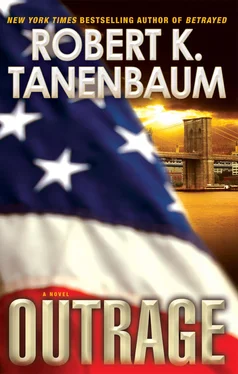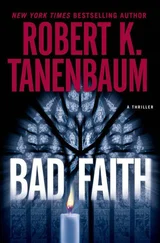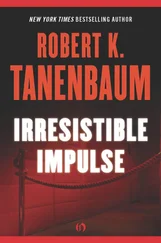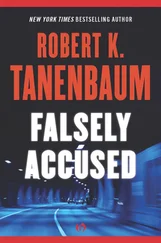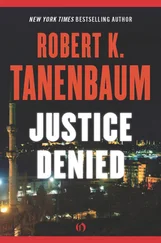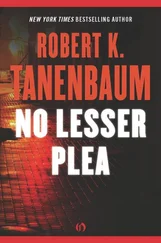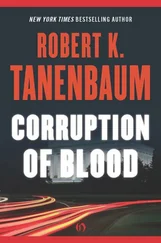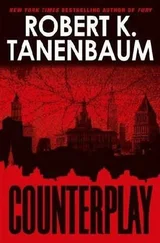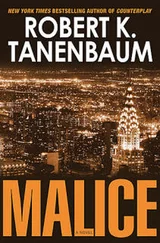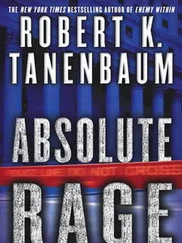Robert Tanenbaum - Outrage
Здесь есть возможность читать онлайн «Robert Tanenbaum - Outrage» весь текст электронной книги совершенно бесплатно (целиком полную версию без сокращений). В некоторых случаях можно слушать аудио, скачать через торрент в формате fb2 и присутствует краткое содержание. Жанр: Исторический детектив, на английском языке. Описание произведения, (предисловие) а так же отзывы посетителей доступны на портале библиотеки ЛибКат.
- Название:Outrage
- Автор:
- Жанр:
- Год:неизвестен
- ISBN:нет данных
- Рейтинг книги:3 / 5. Голосов: 1
-
Избранное:Добавить в избранное
- Отзывы:
-
Ваша оценка:
- 60
- 1
- 2
- 3
- 4
- 5
Outrage: краткое содержание, описание и аннотация
Предлагаем к чтению аннотацию, описание, краткое содержание или предисловие (зависит от того, что написал сам автор книги «Outrage»). Если вы не нашли необходимую информацию о книге — напишите в комментариях, мы постараемся отыскать её.
Outrage — читать онлайн бесплатно полную книгу (весь текст) целиком
Ниже представлен текст книги, разбитый по страницам. Система сохранения места последней прочитанной страницы, позволяет с удобством читать онлайн бесплатно книгу «Outrage», без необходимости каждый раз заново искать на чём Вы остановились. Поставьте закладку, и сможете в любой момент перейти на страницу, на которой закончили чтение.
Интервал:
Закладка:
“I’ll kick his butt if he does,” Zak blustered. “He’s just a big, fat catcher.”
“You’re not getting the point-”
Whatever Giancarlo was going to say was cut short by the appearance of Moishe Sobelman. “Boys, boys, what are these hard words and angry eyes?” he asked, clapping a hand on each boy, though he had to reach up to do so. “It’s a terrible thing when brothers fight. But come, let’s discuss this over something to eat. Let me see, will it be your father’s favorite, cherry cheese coffee cake, or could I interest you in something else today? A raspberry almond torte, perhaps? Of course, your mother will probably be angry with me for ruining your dinners.”
The twins immediately stopped sneering at each other and grinned at Sobelman. They happily followed him around behind the counter into the kitchen, where Moishe sat them down at a small table and took their orders. Neither ventured too far, however, from their father’s addiction, opting only to try the blueberry cheese coffee cake.
Sobelman went out to the counter and then returned with the coffee cakes. He then sat down with a cup of coffee and waited for the boys to get well into their treat before asking what they’d been fighting about. He then listened patiently as each boy gave his side of the story.
“It’s only six or seven guys, and we have twenty-five guys on the roster,” Zak said in conclusion. “If something happens and those guys get kicked off the team, or Coach Newell loses his job, we’ll have no chance to take state this year. Why should the whole team suffer for one guy?”
Sobelman looked thoughtful and then responded gently. “Indeed, why should the rights or happiness, or even the safety, of one person supersede what is best for many? Then again, I guess there is a question of what is best for many in the long run. It is a very difficult and often frightening decision to speak up for someone else, Zak. But let’s look at this from the perspective of your report for your bar mitzvah class.”
Sobelman got up and rummaged through a drawer. “In the 1920s, the Nazis were just a few thugs meeting in German beer halls. But they were loud and aggressive, and speaking out against them could even result in a beating. Still, they could have been easily stopped if the majority of Germans who didn’t subscribe to their hateful views had said something, or at least voted against them.” He picked up a piece of paper from the drawer and walked back to the table and sat down.
“You may have heard this; it was part of a speech given by Martin Niemoller, a German minister and philosopher,” Sobelman said, and read from the piece of paper. “‘First they came for the Communists, but I was not a Communist so I did not speak out. Then they came for the Socialists and the trade unionists, but I was neither, so I did not speak out. Then they came for the Jews, but I was not a Jew so I did not speak out. And when they came for me, there was no one left to speak out for me.’”
“I’ve heard that before,” Giancarlo said. “When we were studying the Holocaust in a bar mitzvah class my dad was teaching.”
“Good,” Sobleman replied. “I’m glad you’ve heard it somewhere. But did your father tell you much about Mr. Niemoller?”
“No,” the boys said.
“Well, it is good to know his history as well as his words,” Sobelman said. “For instance, he was a submarine commander in World War I but later became a pacifist and anti-nuclear weapons activist. In the 1930s, he was staunchly anti-Communist and initially supported the Nazis’ rise to power. Only when the Nazis made churches subordinate to the party did he balk and begin speaking out against them. He became very popular in Germany, which angered Hitler, who had him arrested in 1937. He spent more than a year in jail. When he got out, he continued to speak against the Nazis, which got him arrested again and this time sent to the death camps at Sachsenhausen and Dachau in ‘protective custody.’ He was, of course, treated better than the Jewish prisoners and so survived seven years in those hellholes until he was liberated in 1945. He gave his ‘they came for the Jews’ speech after that… which has, of course, become a popular treatise on the danger of political apathy.”
“I understand your point,” Zak said defensively. “But what does this have to do with a baseball team and one kid getting bullied a little?”
It was Sobelman’s turn to shrug. “Maybe only to illustrate how horrible things like the Holocaust start small-a few evil men in a pub, or in a corporate boardroom, or a socialist workers’ party meeting. These evil men believe they know what’s best for everyone else. They say some things that make people uncomfortable, but no one does anything about it. People shrug and say, ‘It’s their right to free speech,’ which is fine, but they don’t counter it, or denounce it, with free speech of their own. The masses are mute. Perhaps they are too intimidated by the smear campaign that would be directed at them. Or maybe they’re afraid of physical violence, even assassination. But deep down in their souls where they are frightened, they know they actually want someone else to make the tough decisions for them.”
Sobelman reached across the table and set his hands on Zak’s wrists. “Right now it’s just a few bullies on a boys’ baseball team. But tolerating this behavior now becomes a mind-set that will carry into the future. These bullies are the same sort of people who end up in those pubs and boardrooms and meeting halls. And those who witness the debasement of another human being and do nothing about it are the same people who may someday ask themselves why they didn’t stand up when the evil men come for them.”
“But shouldn’t Esteban have to stand up for himself first?” Zak asked. “He never does anything about the crap he gets. He won’t fight. He doesn’t tell the principal.”
“Certainly he has to defend himself,” Sobelman said in agreement. “We Jews in Europe learned that the hard way. Except for a few anomalies like the uprising in the Warsaw ghetto and our revolt at the Sobibor camp, we allowed ourselves to be led like sheep to the slaughter.”
Sobelman shook his head. “No wonder those of us who survived it, who want nothing more than to live a peaceful life in the manner that God has ordained for our people, swore that never again would we surrender without a fight. People who criticize the Israelis for their tendency to react harshly to threats might do well to remember that Arabs were not the first people to decide that Jews had no right to exist.”
“So then you agree that this is really Esteban’s problem?” Zak asked, thinking he’d scored a point.
“It’s only part of the equation,” Sobelman replied. “It’s hard to face the world on your own. Still, if you won’t stick up for yourself, you can’t expect others to always fight your battles for you.”
“That’s what I mean about Esteban,” Zak said. “Maybe he should tell his parents, and they should talk to the coach.”
“That’ll never happen,” Giancarlo replied. “His parents are from Mexico. He’s got a scholarship to a good school. They’re probably more afraid to say something than he is. He’s on his own. Even the other minority players aren’t speaking up because they know they could be next. But you’re wrong that he doesn’t stick up for himself. Every time they knock him down with a pitch, he gets back up. They call him names; he smiles and plays that much harder. That’s why I was worried they were actually going to have to hurt him to get him to quit. And now they may have done it, and nobody says anything.”
“So what do you think you should do, Giancarlo?” the old man asked.
Читать дальшеИнтервал:
Закладка:
Похожие книги на «Outrage»
Представляем Вашему вниманию похожие книги на «Outrage» списком для выбора. Мы отобрали схожую по названию и смыслу литературу в надежде предоставить читателям больше вариантов отыскать новые, интересные, ещё непрочитанные произведения.
Обсуждение, отзывы о книге «Outrage» и просто собственные мнения читателей. Оставьте ваши комментарии, напишите, что Вы думаете о произведении, его смысле или главных героях. Укажите что конкретно понравилось, а что нет, и почему Вы так считаете.
